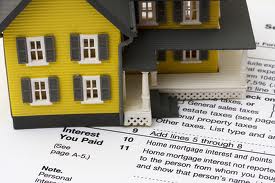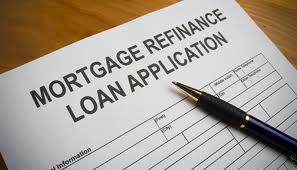The Mortgage-Interest Deduction: Should It Be Reduced in Favor of Jobs?
September 20th, 2011
 Last week the National Mortgage News ran an article, “How to Pay for the Obama Jobs Bill? Answer: Cut the MID,” in which it talked about how the White House budget office is proposing to reduce the amount of mortgage interest that homeowners, making more than $250,000 a year, can deduct from their income taxes in order to help pay for the $450 billion American Jobs Act.
Last week the National Mortgage News ran an article, “How to Pay for the Obama Jobs Bill? Answer: Cut the MID,” in which it talked about how the White House budget office is proposing to reduce the amount of mortgage interest that homeowners, making more than $250,000 a year, can deduct from their income taxes in order to help pay for the $450 billion American Jobs Act.
What this means, according to the article, is that if a married couple, who makes more than $250,000 a year, paid $10,000 in mortgage interest and deducted $3,300 from their taxes in 2010, beginning in 2013, they would only be able to deduct $2,800.
While talk about cutting or eliminating the mortgage-interest deduction has been discussed on Capitol Hill for a number of years, it is still a popular tax break with homeowners. So, what exactly is the mortgage-interest deduction?
The mortgage-interest deduction allows taxpayers who own a home, have a mortgage and itemize deductions on their tax return to reduce their taxable income by the amount of interest paid on the loan. Mortgage interest includes interest paid on the mortgage for a principal residence and a second home, home equity lines of credit, and construction loans. Interest cannot be deducted on more than two homes. According to the IRS, “a home includes a house, condominium, cooperative, mobile home, house trailer, boat, or similar property that has sleeping, cooking and toilet facilities.”
You can deduct the interest on only the first $1 million of mortgage debt, regardless of whether it is your principal or second home. You can also deduct the interest on up to $100,000 in home-equity loans, even if the money isn’t used for home improvements.
The mortgage-interest deduction is offered as an incentive to encourage home ownership, especially for people who continuously rent. With the availability of this tax deduction, you should consider whether purchasing a home is right for you. Contact Grandview Lending for more information on the various home loans available. Our mortgage calculator will help you determine how much interest you’ll pay on your mortgage over the lifetime of your loan.
READ MORE
 This year in the U.S. we’ve seen many devastating events, such as wild fires, tornados, flooding, and a hurricane, which have affected many homeowners. In the aftermath of these events, it is even more devastating for homeowners to find out that their property is underinsured.
This year in the U.S. we’ve seen many devastating events, such as wild fires, tornados, flooding, and a hurricane, which have affected many homeowners. In the aftermath of these events, it is even more devastating for homeowners to find out that their property is underinsured. Are you and your spouse/significant other planning to purchase a new home? While there are several important steps to consider to ensure you’re making the right decision about buying a home, one thing you should take into account is whether you plan to have kids in the future.
Are you and your spouse/significant other planning to purchase a new home? While there are several important steps to consider to ensure you’re making the right decision about buying a home, one thing you should take into account is whether you plan to have kids in the future. Perhaps you’re selling your home or thinking of refinancing now that the interest rates are so low, do you know if your current mortgage has a prepayment penalty clause?
Perhaps you’re selling your home or thinking of refinancing now that the interest rates are so low, do you know if your current mortgage has a prepayment penalty clause? With the recent drop in mortgage rates (
With the recent drop in mortgage rates ( If you’re thinking of buying a home, it’s important to have a good credit score to qualify for a loan. Banks and mortgage companies look at your credit score to determine whether or not they’ll approve a loan based on your credit history.
If you’re thinking of buying a home, it’s important to have a good credit score to qualify for a loan. Banks and mortgage companies look at your credit score to determine whether or not they’ll approve a loan based on your credit history. A common mortgage scam has resurfaced again that dupes unsuspecting homeowners out of a couple months of mortgage payments. Since mortgage institutions are continually consolidating, borrowers can quickly become victims to the scheme and not realize it until they’ve missed several months of actual mortgage payments.
A common mortgage scam has resurfaced again that dupes unsuspecting homeowners out of a couple months of mortgage payments. Since mortgage institutions are continually consolidating, borrowers can quickly become victims to the scheme and not realize it until they’ve missed several months of actual mortgage payments. The economy continues to prevent people from making important key financial decisions. Many who would otherwise be ready to place their house on the market with the intent to move have become basically paralyzed in their decision-making process.
The economy continues to prevent people from making important key financial decisions. Many who would otherwise be ready to place their house on the market with the intent to move have become basically paralyzed in their decision-making process. We talk about mortgages a lot, which makes sense since we are a mortgage lender. But today I am sharing information about the current housing market and pricing your house. After all, without people buying houses, there would be little need for a mortgage lender, would there?
We talk about mortgages a lot, which makes sense since we are a mortgage lender. But today I am sharing information about the current housing market and pricing your house. After all, without people buying houses, there would be little need for a mortgage lender, would there?





